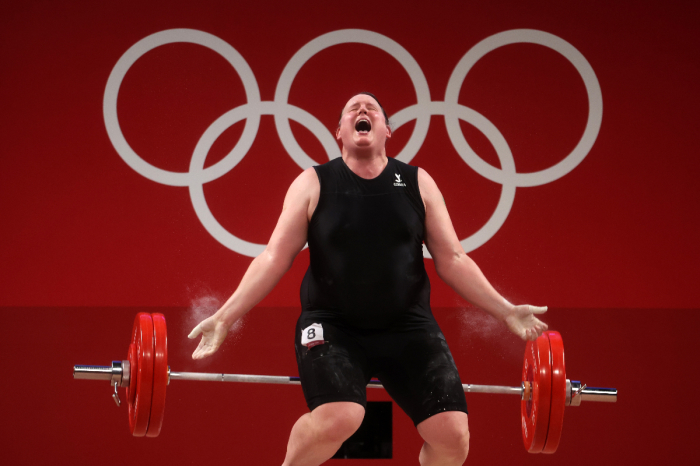Trans-identified Olympian eliminated from women's weightlifting competition, fails to register lift

A biological male who identifies as female was eliminated from women’s weightlifting at the Tokyo Olympics after failing three attempts in the women’s 87+ kilogram competition but still made history as the first trans-identified individual to compete in the Olympic Games.
Laurel Hubbard, a 43-year-old transgender weightlifter from New Zealand, failed three attempts in the snatch category and was knocked out of the competition as a result, reported Yahoo Sports on Monday.
“Thank you so very much for your interest in my humble sporting performance tonight,” Hubbard told reporters. “I know from a sporting perspective I did not live up to the standards I put upon myself.”
“[The International Olympic Committee has] been extraordinarily supportive and I think that they have reaffirmed the principles of the Olympics that sport is something that all people around the world can do, that it is inclusive and successful.”
Hubbard, who has competed against biologically female athletes for years, made headlines in June for reportedly being the first trans-identified athlete to qualify for the Olympics. Hubbard transitioned to a female at the age of 35.
New Zealand Olympic Committee CEO Kereyn Smith said in a statement at the time that Hubbard had met the qualifications to join the South Pacific nation’s weightlifting team.
“We acknowledge that gender identity in sport is a highly sensitive and complex issue requiring a balance between human rights and fairness on the field of play,” stated Smith.
“We are committed to supporting all eligible New Zealand athletes and ensuring their mental and physical wellbeing, along with their high-performance needs, while preparing for and competing at the Olympic Games are met.”
At the 2019 Pacific Games, Hubbard won gold by defeating two women from Samoa by lifting 268 kilograms, 7 kilograms more than the silver medal winner.
Beth Stelzer, a weightlifter and founder of Save Women’s Sports, an activist group opposed to allowing biologically male athletes to compete in female athletic competitions, denounced the decision to allow Hubbard to compete against women at the Olympics as “shameful” and “a mockery of the sport.”
“We cannot change our sex. A male cannot become a female by lowering their testosterone. Women are not a hormone level,” Stelzer said in a statement emailed to The Christian Post in June.
“Identities do not play sports; bodies play sports. The rights of females should not end where the feelings of a few males begin.”
News of Hubbard’s elimination comes as the IOC is considering revisions to its policy regarding the participation of transgender athletes, especially biological males participating in women’s competitions.
Hubbard qualified under the IOC’s 2015 guidelines, which allowed the lifter to compete without a sex change surgery as long as drugs are taken to lower testosterone to below 10 nanomoles per liter for 12 months.
IOC’s medical and science director Dr. Richard Budgett recently said that 2015 guidelines were no longer backed by science, according to The Guardian.
“At the time the 10 nanomoles per liter was set because we thought that was the lower level for men," Budgett was quoted as saying. "We know now that they go down to seven and women can be higher as well. Agreeing on another number is almost impossible and possibly irrelevant. You can debate that endlessly.”
Budgett said that the IOC wants to "increase inclusion in sport as one of the fundamentals, but at the same time our highest, highest priority is fairness."
Katie Mascagni, the IOC’s head of public affairs, told Yahoo Sports that in some sports, "testosterone or other aspects come into play in order to justify the reasons there is a disproportionate advantage." But in other contexts, she said those factors might "be totally irrelevant."
On social media, LGBT activist and bestselling author Amanda Jetté Knox used Hubbard's Olympic result to bash arguments from those who oppose trans-identified individuals competing in women's sports. She stated that Hubbard "was eliminated from competition after not performing as well as the cis athletes who will be competing in the Olympic finals."
"B-b-but how is she going to grab all the gold medals with her 'unfair advantage'?!" Knox wrote on Twitter.
The activist group Fair Play for Women stressed, however, that Hubbard's ability to qualify for the Olympics resulted in a biological female not having the opportunity to participate in the Tokyo Games.
"This is Roviel Detenamo. She should be at Tokyo 2020 today but she'll be watching the games from home because the IOC rules allowed a male person to compete in her female category," the organization tweeted Monday.




























